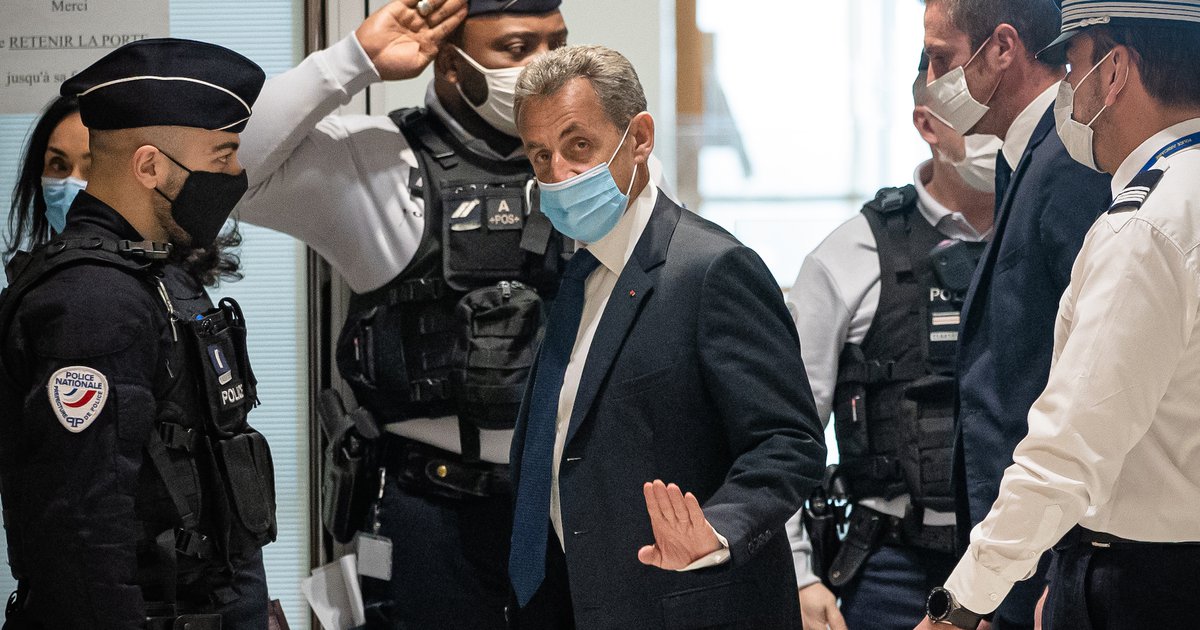
Just that little scratch on the surface of corruption, favouritism and rank rifling of public moneys, is more than enough to explain the crisis of confidence in French established politics. That the corruption existed was never in doubt. Its openness was part of its disguise: it was so much part of the furniture that everyone took it for granted.
The change started with the first scandal (yes, there was a string of others) under President François Hollande, in 2012 when one of his ministers, Jérôme Cahuzac, responsible for rooting out corruption, was found to have been fiddling his taxes for years. This led to new laws, new investigating authorities and a slew of cases.
Of course, not everyone is happy. The current minister of the interior, Gérald Darmanin, said that Sarkozy “has all my support as a friend”. Darmanin is under investigation, accused of rape, an allegation that he denies.
Another voice raised in support of Sarkozy is that of Eric Zemmour, a poisonous viper of the far right with a string of court prosecutions against him over racist provocations and incitement, some of them successful, the last one of these in September 2020 when he was fined by a Paris court for inciting hatred towards Muslims. Zemmour’s stock in trade is a constant denunciation of immigration combined with a vitriolic dislike of Islam.
The young radical journalist, Taha Bouhafs, may force Zemmour’s next appearance in court. Bouhafs is part of a new generation of journalists in the independent media, working to expose police violence in France.
“You can’t tell me that he is not a militant, an indigéniste militant, an Islamist militant,” Zemmour said of Bouhafs, during a November episode of his regular weekday evening appearance on ‘Face à l’Info’, the 7pm slot on the CNews tv station. ‘Indigéniste’ is an insult term now flung around by commentators against anyone from a minority background who opposes discrimination. Bouhafs has since filed a complaint against Zemmour for ‘public insult’.
New media scene
Claiming to know nothing of the facts of the Sarkozy case, Zemmour in his first CNews appearance after the Sarkozy sentencing, denounced the court’s verdict as one that “does not respect the law … Reading the text of the judgement one has the impression that we are reading an article in Mediapart.”
Mediapart is an online investigative publication, which was the first to expose Cahuzac’s corruption and reveal the Libyan funding of Sarkozy. Like Taha Bouhafs, Mediapart is part of the new media scene in France that has helped give that spring in the step of the country’s best judges and public investigators. Zemmour belongs to a rival media scene, in which prejudice, fear and resentment are stoked and through which what has long been called the ‘LePenisation’ of French politics is being cemented into the consciousness of a large part of the French public.
For more than 40 years, Jean-Marie Le Pen and his daughter Marine have built a following based on an anti-immigration rhetoric. Some 25-33% of French voters now regularly plump for their divisive view of the world, in which immigrants and Muslims are root of all evils. Though Zemmour is being touted as a rival far-Right presidential candidate to Marine Le Pen, his politics are hers.